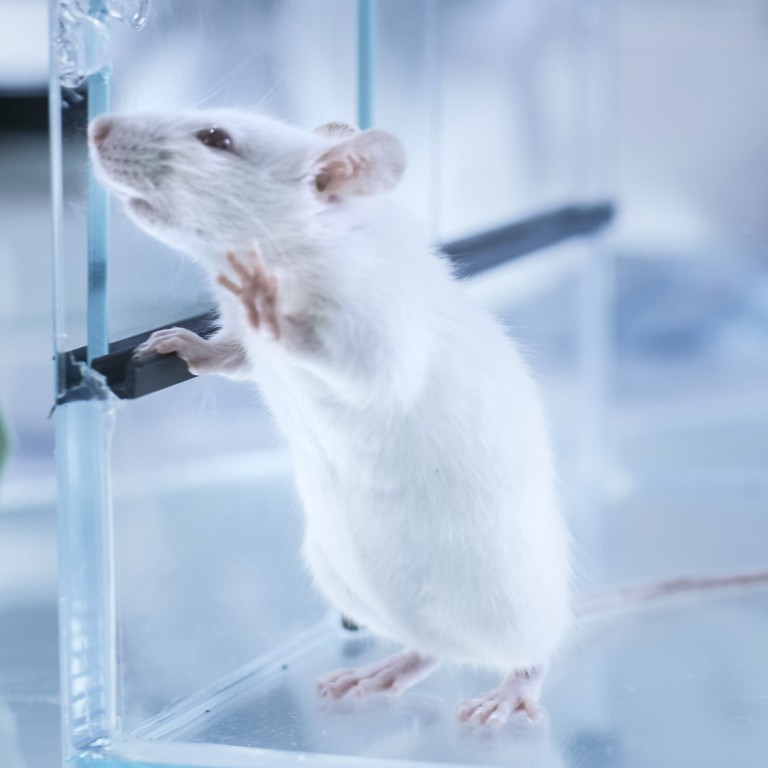
Gut bacteria treatment for depression leaves China laughing online
- Researchers find faecal transplants lessen depressive symptoms in mice
Chinese researchers have established a link between depression and intestinal microbes but their work has been ridiculed on social media as a “useless study featuring eating s***”.
Yao Honghong, a researcher at the medical school of Southeast University in Nanjing, and her team were observing mice in which the NLRP3 gene had been knocked out when they noticed the animals exhibiting depressive-like behaviours compared to the control group.
At the same time, the mice showed a marked difference in the composition of their intestinal microbiota – the microorganisms which are found in the gut. Yao said the research team transplanted faeces from healthy mice into the depressive mice, which displayed a significant lessening in their symptoms.
The study, co-authored by Yao, was published in the American online scientific journal Microbiome last month. Some media reports in China carried the headline “excrement can cure depression”, leading to jokes from many in the online community.

“The correct expression is the transplantation of gut microbiota, not ‘eating s***’ as some netizens are expressing,” Yao said.
“Transplantation of gut microbiota is a new technology, and we have strict regulations over which healthy test subjects to choose, we deal with the gut microbiota in low temperature and have strict antidote-making procedures, it is definitely not equal to eating excrement,” she said.
Yao said the research team was now working to establish the clinical potential of the findings.
“Right now we are collecting excrement from healthy volunteers, to try and extract their gut microbiota and treat patients with depression,” she said. “We need to establish which microbes are specifically related to depression, explore how to extract them and make capsules, as well as conduct experiments based on human faeces in the future.”
What is the microbiome? Doctors explain how gut bacteria regulate body
Yao said current treatments for depression needed improvement. Medications are inefficient and have side effects, with the vast majority of patients not responding until 3-5 weeks after initial treatment, she said.
According to WHO estimates in 2017, more than 54 million people in China suffer from depression and, in February, Peking University reported depression and anxiety were on the rise in the country, after a two-year study which interviewed 32,552 people.
The researchers estimated that 16.6 per cent of Chinese adults had experienced mental illness at some point in their lives. Anxiety disorders were the most common. Depression was also on the rise, affecting 6.9 per cent of those surveyed.

.jpg?itok=H5_PTCSf&v=1700020945)